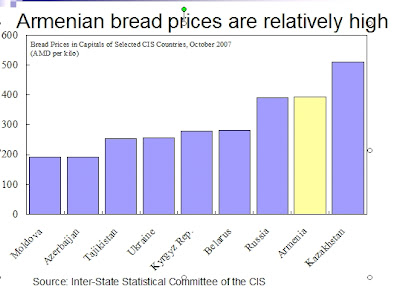Recently, as a result of the football diplomacy between Armenia and Turkey, an opinion poll was conducted in both Turkey and Armenia to gauge the reaction to new gestures in the Turko-Armenian relationship. The poll was carried out by MetroPoll in Ankara…
ეკონომიკა
The IMF has recently published its analysis of the developments in non-oil tax policy, administration and revenues in Azerbaijan. Non-oil tax policy could be an important tool in stimulating the development of non-oil sectors of the country’s economy.…
In Georgia, attention now turns towards sorting out the impact of the short August conflict. How plausible is the reporting we are seeing? Do the journalists get it right?
Results of the World Bank’s Doing Business 2009 project, claims to present “objective measures of business regulations and their enforcement across 181 economies and selected cities at the sub-national and regional level”, were made public today.
Over the past year questionable lending practices by major banks and lack of consumer education about credit risk in the United States among “sub-prime” borrowers caused a credit crunch that in turn erupted into a major financial crisis that threatens…
At first glance it may seem that trade between the Georgian region of Samtskhe-Javakheti and the neighboring Armenian region of Shirak should provide a natural basis for development in both regions. However, the main border crossing point in Samtskhe Javakheti…
A slightly specialized topic: what’s the cost of tourism? Often suggested as a way of developing parts of the South Caucasus, especially Georgia, quickly, it’s interesting to take a quick look, since in tourism many factors interact: business, environment, architecture,…

Readers here may not be aware that actually our Armenian CRRC also runs its own blog, to announce and describe CRRC’s events. One of the most recent events was a lecture by the IMF Resident Representative in Armenia, Dr. Nienke Oomes.…
